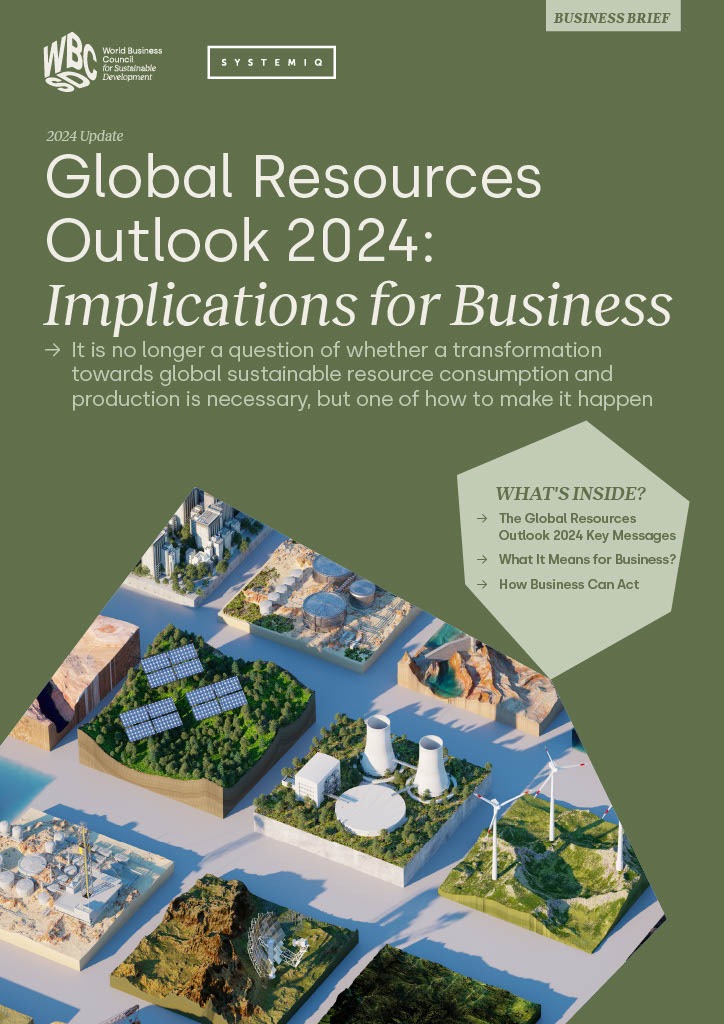A Business Brief developed with WBCSD shows how ambitious leaders can decouple value creation from resource consumption to build more resilient businesses and a healthier planet.
Lessons learned from pioneering projects at Apple, Unilever and Arkema demonstrate the opportunities that CEOs and Boards of Directors can take.
Systemiq and the World Business Council for Sustainable Development (WBCSD) today publish a new Business Brief, which presents business implications from the International Resource Panel’s flagship Global Resources Outlook 2024 (GRO24).
The brief sets out opportunities and benefits for businesses who chose to decouple value creation from resource consumption by ramping up ambition on circular economy practices and resource efficiency. It provides a clear pathway to change for ambitious businesses who want to lead systemic change, driving demand signals for sustainable resource management and fostering collaboration for a healthier planet.
Resource over-use incurs climate damage - and business risk...
Today, resources are extracted, processed, consumed and thrown away in a way that drives climate change, nature and biodiversity loss, as well as pollution and waste. Since 1970, total global material use has more than trebled and the extraction and processing of materials lies behind 60% of adverse climate impacts, more than 90% of the loss of biodiversity and water stress related to land use and around 40% of particulate matter pollution affecting health.
The new paper shows that resource use is linked to multiple business risks – with increasing volatility in supply chains driven by competition for certain natural resources, exacerbated by climate change and geopolitical disruptions. Increasing material costs are affecting profitability as competition for finite resources increases. Businesses also face increasingly complex climate-related regulation and higher levels of scrutiny and expectation from consumers, employees and investors around their impact on the planet.
“Consumers, investors and governments will increasingly reward responsible, innovative ways of meeting human needs without stimulating resource extraction. Business leaders who raise the ambition of circular business models will stimulate innovation, improve resource productivity, and deliver clear benefits for the planet and its people.”
Manuel Braun, Systemiq’s Director for Circular Business Models
...But future-facing companies are using resource strategies to drive business goals
The paper outlines the opportunity for CEOs and Boards of Directors to unlock new profit pools and enhance resilience by decoupling value creation from resource consumption. It shows that resource efficiency and productivity can be a cross-enterprise lever for delivery of multiple goals including building resilient supply chains, reducing costs, increasing competitiveness and enhancing differentiation. It includes case studies of businesses who are already pursuing strategic resource management and decoupling value creation from resource use, including Apple, Unilever and Arkema.
The Business Brief offers both a stark warning to business leaders on maintaining the status quo, and a clear pathway to change. It sets out three long-term objectives for business leaders in any sector to operationalise decoupling:
- Flatten the curve of future demand for resources
- transition towards renewable resources; and
- optimise resource-intensive systems.


